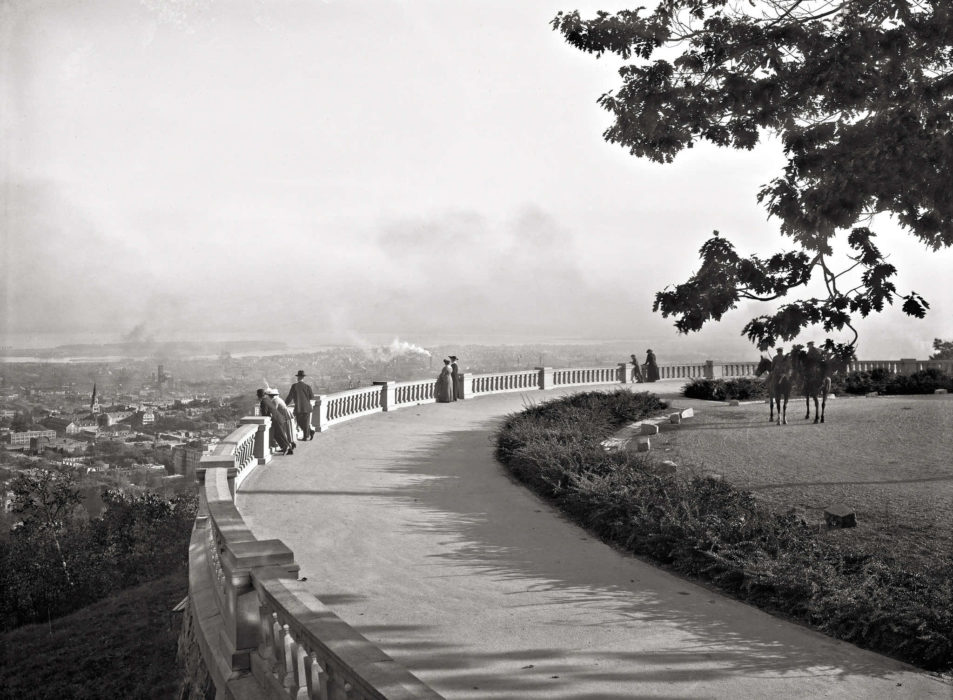SEPTEMBER 8, 1912, WAS a wet Sunday and ‘Abdu’l-Bahá spent his last day in Montreal at his hotel, saying farewell to the Maxwells and other Montreal friends and well-wishers. After a similar period of time, I, too am bidding farewell to ‘Abdu’l-Bahá in Montreal. If there was one overarching message I got from covering the week, it was his emphasis on the need for humanity to undergo a wholesale transformation.
‘Abdu’l-Bahá saw with clarity that Europe was headed towards an “appalling war,” and that economic injustice would lead to labor unrest on an unimagined scale. He defined the underlying spiritual principles of economic ills, international conflict, gender inequality and domestic poverty. His novel concepts defied conventional categories, yet were taken seriously by the mainstream media that could have all too easily represented him as a foreigner with exotic ideas.
During his time in Montreal, ‘Abdu’l-Bahá met with the leading members of society, including the Archbishop of Montreal and the principal of McGill University, as well as ministers, rabbis, labor leaders and wealthy merchants. But he was not on what one might today call a profile-raising public relations tour. He was in Montreal to enunciate his father’s teachings, and to boldly invite social leaders to help actualize them. “Would you not like to serve such an ideal?” he said to a group of McGill professors.

‘Abdu’l-Bahá’s public reach in the city was greater than in any other stop on his western tours. Historian Will Van Den Hoonard estimates that approximately 2,500 individuals heard ‘Abdu’l-Bahá speak in Montreal, and up to 440,000 readers of English and French language newspapers were exposed to his ideas. As impressive as those numbers sound, we have no way of measuring the impact of this visit on the people of Montreal as a whole. What we do know is that for the small number of those who already knew of ‘Abdu’l-Bahá, the visit was transformative.
Nowhere was this effect more evident than in the Maxwell household itself. Near the end of ‘Abdu’l-Bahá’s visit, May Maxwell described to him the change his visit had brought about in her husband, William Sutherland Maxwell. When May told Sutherland she was a Bahá’í, he told her: “Very well, you are responsible for this yourself. I have no hand in it.” As a result of personal contact with ‘Abdu’l-Bahá, Sutherland Maxwell became actively engaged in the Bahá’í community. Years later, the couple’s daughter Mary would wed the grandson of ‘Abdu’l-Bahá. Sutherland moved to Haifa and turned his well-established architectural skills to the design of the most prominent Bahá’í shrine in the world on the slopes of Mount Carmel.
So too the visit altered the lives of the handful of Bahá’ís in Montreal at the time. Their experience of meeting ‘Abdu’l-Bahá, and seeing how their own city recognized and regarded him, had a qualitative difference on how they understood themselves. In the years before the twentieth century’s terrifying revolutions of class, race and nation, ‘Abdu’l-Bahá presented an alternative revolutionary mission for the nascent Bahá’í community in Montreal. “I have sown the seed,” he told them on his final day in the city. “You must water it.”






